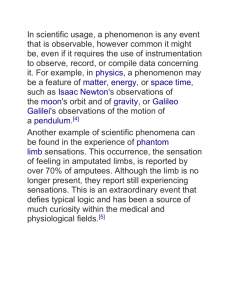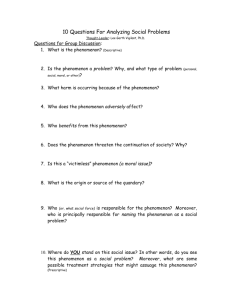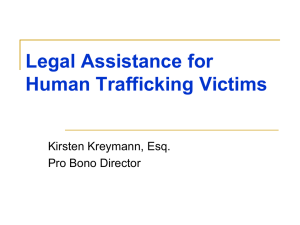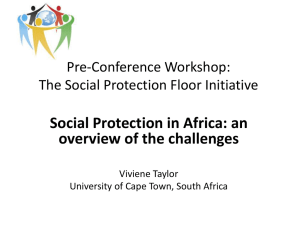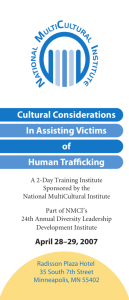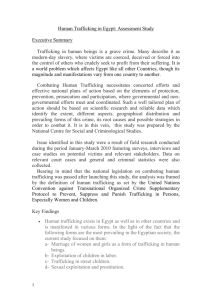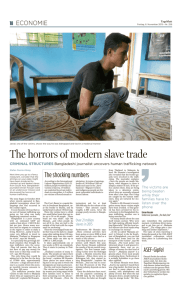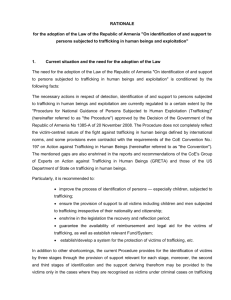SPEECH/
advertisement
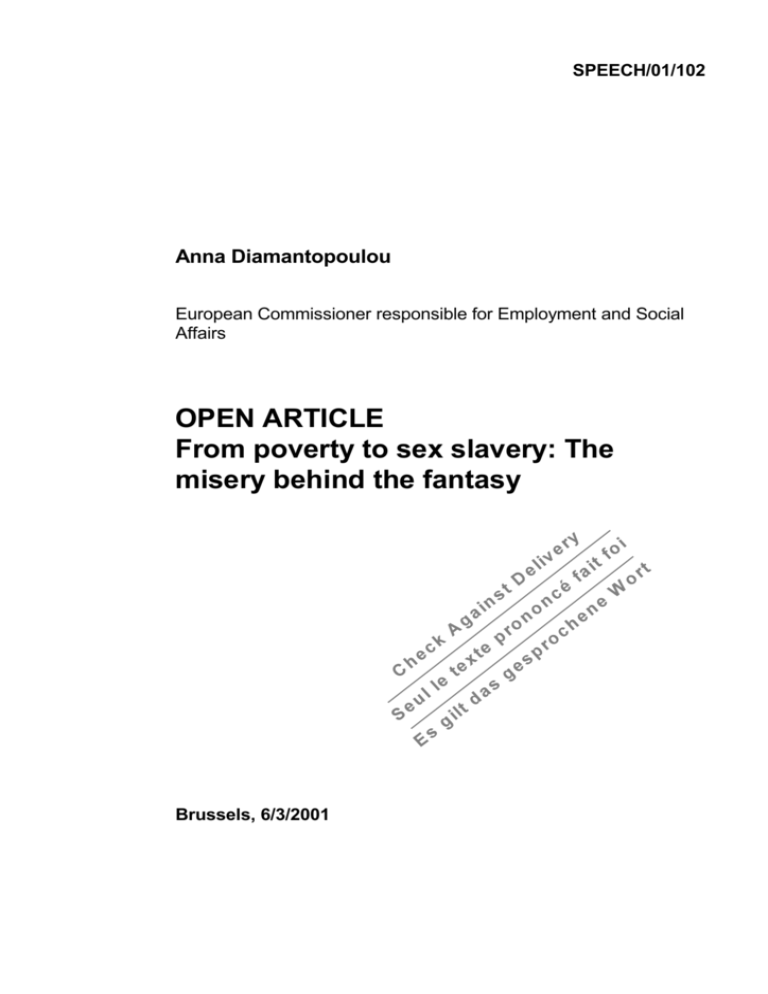
SPEECH/01/102 Anna Diamantopoulou European Commissioner responsible for Employment and Social Affairs OPEN ARTICLE From poverty to sex slavery: The misery behind the fantasy Brussels, 6/3/2001 One might imagine that trafficking in women and their sexual exploitation is a throwback to bygone days or a stigma of countries lost in the depths of Africa or Asia, that it is a dismal and abhorrent nightmare far removed from the glossy surface of life in the EU countries. However, the nightmare is upon us. It is circulating on our roads, it is in our very neighbourhoods, it is encircling us and it is a stain on our culture. It is not hidden or latent - it does not tiptoe about in the dark. We see it in the plate glass windows of Antwerp and Hamburg; it inundates the centres and pavements of Amsterdam, Paris, Athens, and Rome; it is a product for sale in the markets of London and Madrid, and it is headline news in newspapers and periodicals — indeed it is even flourishing on the Internet. Fifty thousand women enter the European Union as sexual products seeking to improve their lot — but all that awaits them is humiliation and misery. Poverty, destitution, loneliness, refugeehood — their passports. Violence, trafficking, scorn— their wages. A shame on our civilisation, because all of us are in some way responsible. We are talking about societies that foster discrimination, poverty, and prejudice, about customers — “consumers” who have put their humanity in their wallets. Politicians who refuse to strike the evil at its roots. Citizens whose disapproval merely takes the form of ethical or aesthetic revulsion at a phenomenon which does not concern them — unless it knocks at their door. And of course women, women themselves (and I do not mean the victims, the procurers' unfortunate prey). For it is incumbent on women to be particularly sensitive to the severity of this racial and human scandal and to rise up in revolt, as they did in the past to secure the right to vote, the right to work, the right to their share in society's goods. What is the point of today’s celebration of International Women’s Day if we close our eyes to the scourge of women's sexual exploitation? What soft-spoken hypocrisy could mask the empty gaze (empty too because of despair) of the women behind the plate glass windows and the streetwalkers? What is the meaning of a statistical victory or the successful implementation of equality policy when phenomena such as trafficking in women still exist in civilised Europe? As Commissioner responsible, amongst other things, for equality between the sexes, as a person who wishes to retain her self-respect and as a woman who senses the offence to her own cause, I urge you to mount a major effort to wipe out this scourge. Firstly, I think that 8 March 2001 should be an invitation to the international organisations and the European Union to take coordinated international action against the phenomenon. In particular, the European Commission has recently proposed joint measures in the fields of legislation, cooperation between the police authorities and, as regards aid for developing countries, a major drive to address poverty among women and children. Likewise, violence against women and their exploitation is one of the five pillars of the fiveyear action programme for women. Today, 8 March, I am also announcing the launching of an information campaign in all the trafficked women's countries of origin so that they can learn more about the misery that lies behind the mirage. 2 Secondly, today is an opportunity to invite the governments of the Member States to adopt stringent legislation, to see to its enforcement, to adapt the social systems to the new needs, to provide for cooperation between universities and NonGovernmental Organisations with a view to analysing the phenomenon and also to looking after and supporting the victims. Thirdly, today we invite all citizens' associations to play an active role in combating the phenomenon and supporting the victims. Implementing this invitation on the part of organisations or networks of organisations at European level (the e.g. the NonGovernmental Organisation RAUOKE in Antwerp) could constitute an example of good practice. Finally, I see this as an invitation to all citizens to take a more active stand both in respect of the victims and the perpetrators, whether motivated by their personal feelings or because they view this phenomenon as an affront to the society we live in. 3


